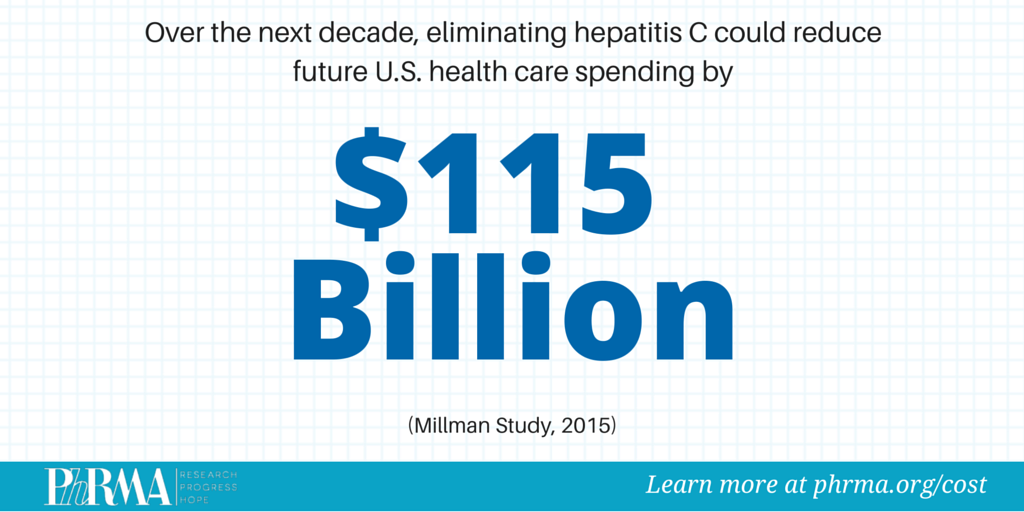
Costs and Consequences is a blog series examining the health care burden of not treating diseases. Too often, the rhetoric focuses solely on the cost of medicines and disregards the adverse societal and economic impacts of not treating diseases. Stay tuned for the next post in the series and be sure to share your thoughts in the comments section below.
A new report by Milliman on the clinical burden of hepatitis C projects that the incremental cost of hepatitis C to the U.S. health care system is projected to be $115 billion over the next decade. The report estimates that, in the absence of a cure for hepatitis C, more than 350,000 patients would be living with advanced stages of the disease – including 100,000 more with cirrhosis of the liver and 250,000 more patients with end stage liver disease – by 2025.
 According to the report, government programs would bear a significant share of this burden. The Medicare program would spend an additional $30.4 billion, while Medicaid would incur additional spending of $21.5 billion.
According to the report, government programs would bear a significant share of this burden. The Medicare program would spend an additional $30.4 billion, while Medicaid would incur additional spending of $21.5 billion.
Hepatitis C is a devastating viral disease that kills more people each year than HIV/AIDS. It is the leading cause of cirrhosis and liver cancer and the most common reason for a liver transplant in America. Fortunately, recent breakthroughs in treatment are providing cure rates upwards of 90 percent. As more patients receive the newest generation of medicines, experts have predicted hepatitis C will become a rare disease within the next 20 years.
Advances such as these exemplify the integral role that medicines play in preventing human and economic burden and relieving stress on the health care system. In the absence of effective treatments, we would be living in a far different world than we do today.
 Read the complete report here.
Read the complete report here.
Learn more about how are often the most cost-effective means of preventing and treating disease here.




 According to the report, government programs would bear a significant share of this burden. The Medicare program would spend an additional $30.4 billion, while Medicaid would incur additional spending of $21.5 billion.
According to the report, government programs would bear a significant share of this burden. The Medicare program would spend an additional $30.4 billion, while Medicaid would incur additional spending of $21.5 billion. Read the complete report
Read the complete report 

